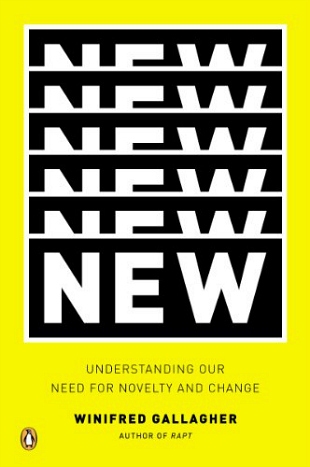Most of us know people who consistently try to be the first one to get the latest smartphone or technological device. They are similar to people who will sleep on the streets to make sure they get into the first screening of a movie.
Winifred Gallagher is a former psychology editor at American Health who is now a science writer and journalist. In this fascinating book, she explores the complex origins, uses, and excesses of "neophilia" — the need to seek out novelty and change.
In our information age, this phenomenon is deeply entrenched in culture and a positively viewed aspiration at the heart of capitalism. Gallagher states that perhaps 10 to 15 percent of us are avid neophobes, always on the lookout for something new and different. Some 70 to 80 percent are moderate neophobes.
The ability to constantly cope with new situations and changes enabled our species to survive the upheavals of our evolutionary movement through time. In a very interesting chapter on "The Alchemy of Anticipation," Gallagher explains the role of dopamine in the brain's chemistry as a spur to novelty and excitement:
"Dopamine makes you want things, especially new and pleasurable ones. Whenever you encounter something that's enjoyable, like a glass of wine, or intriguingly novel, like a glamorous stranger at a neighborhood party, a spritz of dopamine jacks up your level of arousal, focuses you on that target, and mobilizes your explorative approach response — a symphonic collaboration that you experience as 'Go for it!' "
Gallagher adds material on the links between novelty and nurture, culture and curiosity, and the endless cornucopia of new stuff before baptizing neophilia as a necessary survival skill in our times. Yet she issues this warning:
"If we're to make the best use of our neophilia in a new epoch of endless novelty, we must make conscious decisions to ensure that it's working for us, rather than the other way around."
Nowadays more and more people are complaining about information overload — we consume about 100,000 words each day from various media; there are 4.5 billion cell phones on the planet and even more cameras; the average worker gets three minutes to concentrate on any task before being interrupted by e-mail or a phone call; and there is far too little restorative time in this fast-forward world. According to Gallagher, reverie has been banished from childhood since kids are texting all the time.
What we desperately need is more novel ways of stopping all of us from drowning in the tsunami of new data that has upended our lives.
